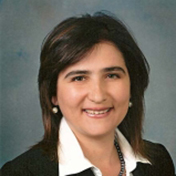I read on this site that it will be necessary to prove the lawful origin of $1 million dollars and total revenue of at least $200,000 in the last two or three years for me to apply for the EB-5 visa. I’ve had a pharmacy in Brazil for 14 years and I”ll sell it. After that, I have to prove the lawful origin of one million dollars or a little more, but I have no way to prove an income of $ 200,000 in the last two or three years because the pharmacy has been stopped and had no revenues for the last four years. Can I get a visa in these conditions? Would I still have to prove the $200,000 revenue even if I receive over $1 million from the sale?
Answers

Reza Rahbaran
EB-5 Immigration attorneysFirst, you must show ownership of the pharmacy. Second, the sale of your pharmacy should be sufficient to show source of funds; the $200,000 income annual requirement is set forth by the SEC for certain regional centers. If the sale exceed $1 million USD, then you have a net worth of $1 million USD, meaning you may qualify as an accredited investor.

Shahzad Q Qadri
Creating EB-5 Regional CentersYou are mixing up two concepts. The $200k annually is required for accreditation to become an accredited investor. If you sell your pharmacy, the documents should be sufficient to show that is where you derived your funds from. You may need to invest as a non-accredited investor.

Margo Chernysheva
EB-5 Immigration attorneysAs long as you can show that you have enough money to live on during your conditional residency, you should be fine. So for example, if your pharmacy sells for $1.3M and you invest $1M, you have $300K to live on and that would be adequate.

Ed Beshara
EB-5 Immigration attorneysYou ask very important questions regarding the EB-5 requirements for being an accredited investor as well as proving the lawful source of your EB-5 personal investment funds. It is important to retain the services of an experienced EB-5 attorney to clarify and answer your questions so that you can fully understand the EB-5 requirements, because it is quite apparent by your statements that you do not understand the process and the requirements. The EB-5 regional centers in most instances only require an investment of US $500,000.00 and not $1 million. Therefore, you have to authenticate the lawful source of your EB-5 investment funds. If you cannot show a yearly income of $200,000 then the alternative is to show that you may have a net worth of $1 million if the requirement is that you need to be an accredited investor.

Salvatore Picataggio
EB-5 Immigration attorneysThose securities and exchange commission regulations are used by many regional centers, but not all. Being able to support yourself in the United States, pay U.S. taxes, etc. will be an important requirement in moving forward with obtaining U.S. lawful permanent residency. We would review any relevant factors that could affect your U.S. immigration goals and help you develop a strategy to move forward.

Jinhee Wilde
EB-5 Immigration attorneysThe sale of your business is enough to prove the source of funds. You need to provide business documents that you owned it, corporate tax returns, etc. prior to the sale.

Fredrick W Voigtmann
EB-5 Immigration attorneysThe $200,000/$1 million requirement is not a legal or regulatory requirement for EB-5 under U.S. immigration law. It has to do with SEC regulations. EB-5 regional centers have this requirement to make sure the investor is a qualified investor under SEC regulations. It is an "either/or" requirement. If you receive $1 million from the sale of your business, then you do not need to prove $200,000 in income.

Olga Karasik
EB-5 Immigration attorneysI believe you are talking about two different requirements, one is to qualify as a "qualified investor" under SEC rules for the regional center, EB-5 only. Qualified investor should show the level of income you were referring to. However, this requirement does not apply to the EB-5 based on direct investment in your own business. The other requirements are for "lawful source of funds," this requirement applies to both regional center and direct investments. To meet this requirement it will be sufficient to show that you sold your current business for substantial amount of money exceeding the EB5 investment requirement. There is also a requirement to show that you will have enough income to provide for a reasonable standard of living in United States. This applies to both regional center and direct investment. Since regional center projects do not pay enough interest to investors to provide for their living expenses in United States, you will need to show that you have enough of other sources of income to support yourself and your family. If you are pursuing direct investment route and your business plan reasonably provides for a substantial income from your business to support your living expenses, USCIS will usually accept this. If you have any other questions, please do not hesitate to contact me.

Lynne Feldman
EB-5 Immigration attorneysThe sale documents should be good evidence of lawful source of funds. Retrieve the original purchase evidence from your files as well as your tax returns for the last ten years showing the income you did receive.

Kripa Upadhyay
EB-5 Immigration attorneysTo prove the lawful source of funds you will need to provide documentation showing that the pharmacy you refer to was owned by you or your family. You should also collect any and all documents available to show that the pharmacy was sold and the amount it was sold for. If total revenue from the sale of the pharmacy was less than the $1 Million, then you will need to document where and how you earned/come up with the remainder ex: salary, investment, gift, etc.

Rachel Lew
EB-5 Immigration attorneysTo qualify EB-5 immigration benefits, you have to be an accredited investor, who is either: (1) A natural person whose individual net worth, or joint net worth with the investor''s spouse, exceeds $1,000,000 USD; OR (2) A natural person who had an income in excess of $200,000 USD during each of previous two years and reasonably expects to have income in excess of $200,000 USD during the current year, or joint income with the investor''s spouse in excess of $300,000 USD during each of the previous two years and reasonably expects to have a joint account in excess of $300,000 USD during the current year. Because it is either or, you do not need to satisfy both requirements. If you receive over $1,000,000 USD after the sale of the pharmacy and can prove the legal source of the original purchase price, you should qualify under the EB-5.
DISCLAIMER: the information found on this website is intended to be general information; it is not legal or financial advice. Specific legal or financial advice can only be given by a licensed professional with full knowledge of all the facts and circumstances of your particular situation. You should seek consultation with legal, immigration, and financial experts prior to participating in the EB-5 program. Posting a question on this website does not create an attorney-client relationship. All questions you post will be available to the public: do not include confidential information in your question.






